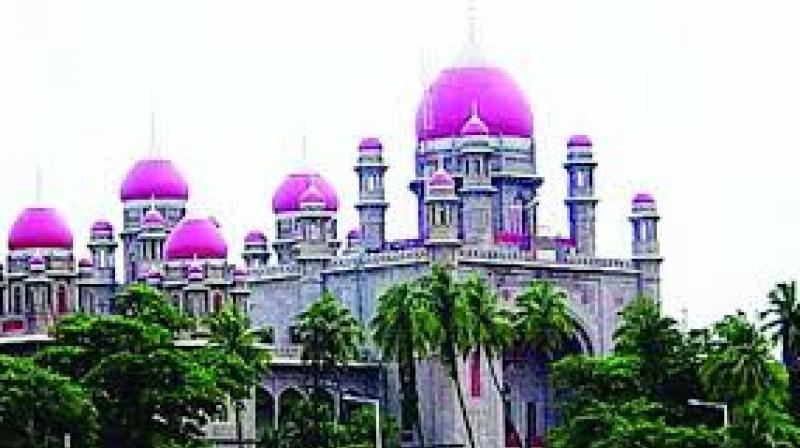Hyderabad High Court says Govt bent rules for teachers

Hyderabad: In a significant ruling, the Hyderabad High Court on Tuesday declared that the amendment to the Presidential Order 1975 for implementation of Unified Service Rules for teachers working in government schools and schools run by local bodies was ultra vires of the power conferred by Clause (1) of Article 371D and beyond the purview of the different aspects indicated in sub-clauses (a) (b) and (c) of clause (2) of Article 371D of the Constitution.
This means promotions for teachers working in state schools/junior colleges and those working in ZP schools will be treated separately like earlier. As many as 3 lakh teachers working in Panchayat Raj schools of both states had been demanding Unified Service Rules and about 42,000 teachers working in state government-owned schools of both states had been opposing it.
A division bench comprising Chief Justice Thottathil B. Radhakrishnan and Justice V. Ramasubramanian while allowing the petitions by the government teachers association of Telangana state and others held that “while there is power conferred by Article 371D to organise any class or classes of posts, no power of merger of cadres is expressly or impliedly conferred by Article 371D (1).”
The bench also held that “Entry 23A inserted in the Third Schedule to the Presidential Order, 1975 by GSR 637 (E) dated 23.06.2017, in as much as the same places as Mandal Educational Officer, Headmaster and Headmis-tresses in Government and Zilla Parishad High Schools in the same class, is ultra vires of Article 371D.” The petitioners challenged the Constitutional validity of (1) sub-para-(2A) of Para 3 of the AP Public Employment (Organisation of Local Cadres and Regulation of Direct Recruitment) Order, 1975 and (2) Entries 23A, 26A and 26B of the Third Schedule to the Presidential Order, 1975, inserted on June 23, 2014 with effect from Nov 20, 1998.
The Centre inserted the Para 2 A in the Presidential Order 1975 by which non-gazetted teachers working in the schools of Mandal and Zilla Parishads were integrated with non-gazetted teachers working in state government schools and organised both these separate and distinct categories into a separate integrated cadre. The power to issue a Presi-dential order under Article 371D is not for ratification of any act already done in violation of the Presidential Order.
Article 371D merely confers the power upon the President to organise various classes of posts in each department in each district into local cadres. Once this is done, it will be up to the Government to merge or integrate different categories of posts and to give retrospective effect, if permissible in law. The bench noted that instead of requesting for a Presidential order, merely to organise the posts of teachers in Zilla Parishad schools and Panchayat Samithis schools into local cadre in terms of Article 371D and thereafter, integrate them with others in terms of the rules issued under the proviso to Article 309, the government appears to have taken a shortcut and have the retrospective effect sanctioned by the Presidential Order itself.
The bench pointed out that “in order to insulate the retrospective effect from any attack on the ground of Article 14, the State Governments appear to have adopted the devious method of seeking a Presidential Order to integrate 2 different cadres with retrospective effect. No court can approve of such a game plan.”

